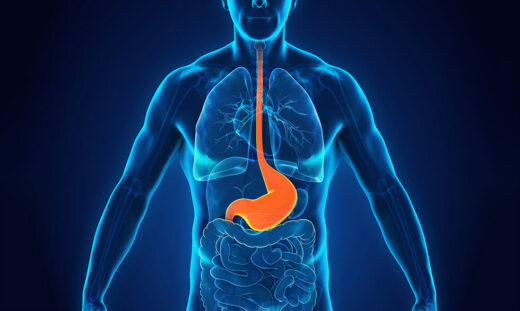Almost everyone has felt it: a burning sensation rising from the stomach to the throat, especially after a heavy meal or when lying down. This uncomfortable condition is called heartburn, and while it might seem minor, frequent episodes can point to more serious digestive issues.
At Erdem Hospital, where we’ve been offering personalized medical care for over 37 years, we believe that treating symptoms means first understanding them. Here’s what you need to know about heartburn, what causes it, and how to manage it effectively.
What Is Heartburn?

Heartburn, despite its name, has nothing to do with the heart. It occurs when stomach acid flows back up into the esophagus the tube that connects your mouth to your stomach. This acid reflux irritates the lining of the esophagus, causing a burning pain in the chest or throat.
Occasional heartburn is common and usually harmless. But if it happens more than twice a week, it may indicate gastroesophageal reflux disease (GERD), a condition that requires medical attention.
What Causes Heartburn?
Heartburn usually occurs when the lower esophageal sphincter (LES) a muscle that acts like a valve between the stomach and esophagus doesn’t close properly. This allows acidic contents to escape upward.
Common causes include:
- Overeating or eating too quickly
- Spicy, fatty, or acidic foods (e.g., tomatoes, citrus, chocolate)
- Caffeine, alcohol, and carbonated drinks
- Lying down right after a meal
- Smoking
- Obesity or pregnancy, which can increase abdominal pressure
- Certain medications, such as NSAIDs or muscle relaxants
Recognizing the Symptoms
The classic symptom of heartburn is a burning pain in the chest, especially after eating or when lying down. Other related symptoms may include:
- A sour or bitter taste in the mouth
- Regurgitation of food or liquid
- Difficulty swallowing
- A chronic cough or sore throat
- Hoarseness, especially in the morning
If these symptoms persist or worsen over time, a healthcare provider should be consulted to rule out underlying issues.
Effective Ways to Relieve Heartburn
Most people can reduce or eliminate heartburn with a combination of lifestyle changes and targeted treatments.
1. Adjust Your Eating Habits
- Eat smaller, more frequent meals instead of large portions.
- Avoid eating within 2–3 hours before bedtime.
- Chew slowly and eat mindfully to support digestion.
2. Modify Your Diet
Limit foods and beverages known to trigger reflux. These include:
- Fatty or fried foods
- Onions, garlic, and spicy dishes
- Caffeinated or carbonated drinks
- Alcohol, chocolate, and peppermint
Instead, choose lean proteins, non-citrus fruits, oatmeal, and vegetables.
3. Improve Your Sleep Posture
Elevate the head of your bed by 10–15 cm to help prevent acid from flowing upward at night. Sleeping on your left side can also reduce symptoms.
4. Lose Excess Weight
Even a modest weight loss can reduce pressure on the stomach and lower the risk of reflux.
5. Quit Smoking
Nicotine relaxes the LES muscle, making reflux more likely. Quitting smoking improves both digestive and overall health.
6. Use Medications with Care
If you’re taking medications that may relax the esophageal sphincter or irritate the stomach lining, speak with your doctor about alternatives.
7. Try Antacids or Acid-Reducing Medications
Over-the-counter antacids may offer quick relief by neutralizing stomach acid. H2 blockers and proton pump inhibitors (PPIs) reduce acid production and help heal the esophagus over time.
However, long-term use of acid blockers should always be discussed with a healthcare provider to avoid potential side effects such as nutrient deficiencies or increased infection risk.
When Should You See a Doctor?
Persistent heartburn can signal GERD or other conditions such as ulcers, gastritis, or even early signs of esophageal cancer. Seek medical evaluation if you experience:
- Heartburn more than twice a week
- Difficulty swallowing or unintentional weight loss
- Chest pain not clearly linked to food
- Vomiting or signs of internal bleeding (e.g., dark stools)
At Erdem Hospital, we provide comprehensive diagnostics including endoscopy, ultrasound, and laboratory testing to investigate persistent digestive complaints. Our gastroenterology specialists tailor treatment plans based on each patient’s unique symptoms and health history.
Heartburn Is Common But Treatable
While occasional heartburn is part of life for many, frequent discomfort should never be ignored. Simple lifestyle adjustments often bring quick relief, and with professional guidance, long-term solutions are possible.
At Erdem Hospital, we believe every symptom is worth listening to. Whether you’re managing occasional discomfort or exploring deeper digestive concerns, our team is here to support your journey to better gut health gently, thoroughly, and with care that puts you first.
Let us help you feel at ease from the inside out.